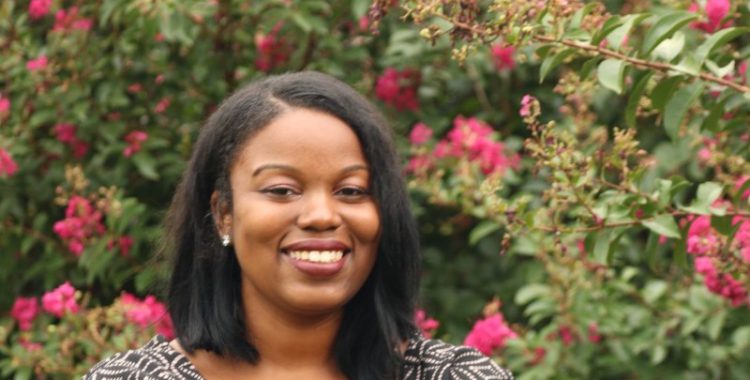
We close out Minority Mental Health Month with Lacrisha Holcomb, a family counselor who once faced immense financial struggles, in addition to professional challenges that eventually triggered depression. She told her story beautifully in Blavity, and graciously offered an even more detailed account of her journey and comeback for Carbon. Read Lacrisha’s inspiring story below.
Tell us about yourself
I was born in Schenectady, New York in the best year of the 90’s! (1991)!! My mother moved back home to North Carolina a few years after separating from my father. I think I was around 9 years old. Our living situation was a little unsteady for a few years, but when I was about 12 years old we settled down in Wilmington, North Carolina. I spent my teen years up until graduating from high school there. I now live in Raleigh, North Carolina where I was offered my first job in the mental health/substance abuse field after graduating from North Carolina Central University in May of 2017.
Describe the circumstances that led to you entering school to survive.
After graduating from Howard University in May 2013 I was recruited as a 5th grade teacher through Teach For America in Memphis, Tennessee. I had no family or friends in the area, and even throughout my undergraduate experience, I received little support from my family. (I think it’s important to mention here that I am the oldest of 8 children raised by a single mother.) Often times, I felt like my mother did not have the time or emotional stamina for me. I was like mommy #2. I never really felt like a child.
Emotionally, she was burnt out and spread thin doing it all on her own for so many years. Therefore, I don’t want it to sound like she was purposefully neglecting me. I love my mother deeply and admire her resilience but I always wanted more from her while understanding that it wasn’t reasonable for me to expect it.
My aunt and cousin were gracious enough to drop me off at Howard during Freshman Week in 2009, and I was on my own for the next 4 years after that. By the time I made it to Memphis, I was tired of being on my own and ended up returning home.
This is kind of complicated to explain because both times that I went to college, it was for survival. This second time though, when I enrolled in graduate school, it was the real deal. I felt like I had no foundation and no purpose. My family’s living situation and the surrounding environment were toxic. My mother had been depressed my whole life on top of a plethora of other mental health diagnoses and I found myself vicariously becoming even more depressed upon returning home. We would get into serious arguments over the most minute and absurd things. I felt like she was projecting her anger on me. When the altercations became physical, I had to leave because I was not going to put my hands on her. At one point I left and stayed at a homeless shelter because I couldn’t tolerate the dysfunction of the household anymore.
It sounds like you were on your own financially-no friends, family to help. Describe what that was like for you in that intense time.
As a first generation college student I don’t think anyone in my family actually understood what the college experience entailed or knew what my needs were at that time. It was lonely and isolating, and my family was not in a position to assist much financially, physically, or emotionally. I would vent to my mother and she still couldn’t quite understand why I was having such a hard time. After graduating and finally entering “the real world” and my first “real job”, the adjustment rocked me to my core. Years of repressed childhood traumas came to the surface upon viewing the poverty and struggle of the inner city schools I was working in. The onboarding process for the teaching program required a lot of soul searching and digging up of our motivation for wanting to teach. It was like going to therapy for the first time. The roof was involuntarily taken off of my mental Maybach, and then the switch just snapped and the roof was flapping in the breeze for next 6 months.
Once winter break approached, I made the difficult decision to resign. My mental health was in shambles. The conditions of the schools and what my students were going through was breaking me. I felt helpless. I didn’t feel like I knew how to do “adulting”. When it reached the point where I was hiding in my classroom or in my car to cry, and hiding from my roommates in my apartment, I knew I had to leave. I needed to heal myself first.
How did you come up with the idea to enroll in school to survive? How did you motivate yourself to enroll/survive?–because it’s hard to get things done when depressed.
Financially, watching the way my mother struggled instilled a strong sense of independence in me. I absolutely refused to depend on a man. Education was my portal to financial security. While in undergrad, I did work-study. In graduate school, I was working two jobs. Once the master’s degree was secured that’s when “ish” got real. My car got repossessed shortly after I graduated because I was unable to work my last semester of school due to a rigorous full time unpaid internship and course load.
Graduating felt like starting at 0. However, I persisted. With the help of God and my boyfriend who allowed me to live with him, I persevered. I accepted a position I was overqualified (and underpaid) for and scraped up the change to apply for my provisional counselor licensure. I borrowed some money from one of my close college girlfriends. Then, I was able to land a salaried position and began to piece my financial situation back together. I got another car. Things were going great for a couple of months before depression made another comeback.
Describe your feelings of depression and how you navigated them/took care of yourself with the huge financial weight.
The first time I recognized being depressed was during my freshman year of undergraduate, but I’ve always been a high-functioning depressed person. I would drown myself in my work and goals to distract from the stress, trauma, and sadness – always envisioning the hard work paying off in me being happy at some ambiguous future date. However, the happiness would usually be short-lived. It would be taken over by a new goal to work towards and new (or old) sadness to power through.
During my graduate school years anxiety joined the party. (Well, actually, I’ve probably been anxious since my teenage years and it manifested in me being an ambitious perfectionist and over-eating. So nevermind.) My anxiety became more severe and noticeable in postgraduate school.
How long did it take for things to stabilize?
After grad school, I’d say it took about 3-6 months for things to stabilize. Piece by piece. New job, new apartment, new car. The annoying thing is that, as with probably everything, it’s much quicker for things to become unstable despite how long it takes to get stable! I became unhappy at my first job in the mental health field and 2018 has had quite a few interesting plot twists, but I think I’m nearing a stabilization period again. (laughs)
I did not comprehend what depression was. I figured it meant being sad all the time.
When you talk of suicidal ideation–what was that like for you? How did you feel during that time and what prevented you from actually taking your life? Did you have any emotional support?
One of the reasons I’m so passionate about mental illness, mental health awareness, and holistic wellness, is because I was not prepared at all when mental illness hit me. I did not comprehend what depression was. I figured it meant being sad all the time. It was the perfect descriptor for my mother’s perpetual presentation. Yet, I just did not understand it. I always wondered why she couldn’t just be happy. It wasn’t until I felt like I didn’t want to live anymore that I started to do my research on what this monster was.
To my surprise, there were numerous signs and symptoms, and mine leaned towards the suicidal spectrum. Thank God I was too scared to act on those feelings. I was deep in the mud but still yearning for the sun. I wanted people to know I was hurting, but I could not fathom how I would go about inflicting pain on myself no matter how intense the emotional pain became. If I could have snapped my fingers and not existed, I certainly would have done that, though.
The first time I went to a psychiatrist, was during my senior year at Howard. The stress and uncertainty of graduating had taken its toll on me. I told the psychiatrist that I did not want to live but had no plan to harm myself, and was prescribed antidepressants. He told me it would take a month or two for the medicine to kick in. I did not have a month or two. I did not want to live in that very second. It was in that moment that I basically decided to live. I realized there was no magic pill or quick fix. My magic became wanting to help other people because I did not care about myself, but did not want to make God unhappy with me by taking myself out. “Might as well be useful if I have to be here”, I thought. As silly as it may sound, that was my actual logic.
I made the decision to become the hero I was looking for…
Do you blame yourself for your circumstance (many do) or do you feel that factors mounted and you managed the best you could?
I blamed everyone except me! I was “Queen Woe Is Me”. I was managing the best I could but I was being consumed by anger and sadness. I blamed God, my parents, bad guys I dated, kids (and adults) that had bullied me—the list was long. I reached my Will Smith “What happened to you wasn’t your fault but healing is your responsibility” light bulb moment when I decided to go to grad school. I wanted to learn about mental health, how to survive, and how to be happy. I made the decision to become the hero I was looking for, because it had finally sunk in that nobody else could save me. At least nobody earthly. God’s grace and mercy saved me and empowered me to take responsibility for how I was going to feel and live.
Did this experience affect how you viewed yourself? How did you deal with that?
For a long time, I was embarrassed. I felt like something was wrong with me and I didn’t want people to know, but simultaneously felt like it was written on my forehead. So for a long time I didn’t really like people because I didn’t like myself and felt like they could see me for the flawed, depressed, and dysfunctional person I was. Next, I entered a stage of overcompensating and feeling misunderstood, but not wanting to help people understand the changes I had experienced. I’m in love with myself now and the woman I’m evolving into. I feel like the ultimate survivor, like there’s nothing I can’t make it through. I’ve never felt as free and liberated as I do now that I’m living in my truth.
What would you tell someone going through a terrifying financial time regarding how to stay emotionally stable and devise a plan?
Although I aspire to avoid cliché sayings at all costs, the perfect overused advice of “do what you have to do until you can do what you want to do” is honestly what I would recommend. You either give in to your circumstances or you fight. Things are not always going to perfectly align from our perspective, but God will use everything that happens to you for your good and the greater plan. You have to do the work and put ego aside.
I’ve worked as a cashier while working on my master’s degree. I’ve worked in a warehouse. Nobody is above “the struggle.” The struggle is here to humble e’rrrrbody! Sometimes the hard or unfavorable situations are the prerequisites for building your character in order to mold you into a higher version of yourself, the one required to fulfill your purpose.
Pray and save. (Some of us) spend too much time and money polishing the outside while ignoring the inside.
Invest in your mental. Buy a journal to get your mind right rather than treating yourself to a manicure. Do what you have to do.
Tell me about your therapeutic practice and The Hug Life Project
I am the founder of an artistic media-based mental health organization called The #HugLife Project. I have many plans in store for it and a rebrand may be coming soon, but the essence will remain the same.
I’ve been thinking of ways to best utilize this platform. It may eventually become a nonprofit or a podcast, still working it out. For now, it is a powerful online community. The challenge that I wanted to solve is destigmatizing the mental health barriers impacting our communities by promoting open discussion of “taboo” topics and raising awareness of psychoeducation to combat stereotypes.
Artwork is a key ingredient in spreading and sharing testimonies. I use this platform to advocate for mental health awareness and gather resources for causes such as assisting the homeless. My work has impacted the community by creating a safe, exciting space to acknowledge vulnerabilities and find resonation through art.
The #HugLife Project has also been able to provide food, snacks, hygiene products, and inspirational notes to people in need. I have received numerous messages from people thanking me for the online posts and information. The short term impact has been providing nourishment and encouragement that has been able to shift someone’s day.
The long term impact has been activating the acceptance and awareness that has motivated people to take back control of their minds and lives. Thus far, I have been able to use social media to reach hundreds of people per post and thousands of people in total using my personal art (words of encouragement, poems) as well as art submitted by other artists.
Is there anything else you’d like people to know about your experience and how you view life and money now?
I view life as any time and space that I’m operating in freedom and I view money as a vehicle of reclaiming my freedom. Money is nothing outside of capitalism, but acquiring it tends to suck up most of our time. I ain’t having that. I’m not with it. So I’m trying to get to my lump sum of coins so I can be ducked off somewhere reading the Harry Potter series for the tenth time and taking naps on demand. We have to survive but we have to LIVE too.
Find your thing and work it so you can ultimately work less and live your life. Either that or let’s go ahead and start this revolution so we don’t have to work anymore! (laughs)
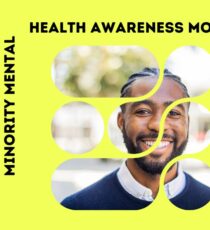
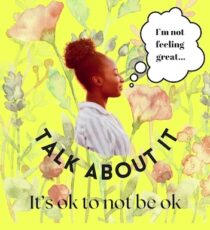
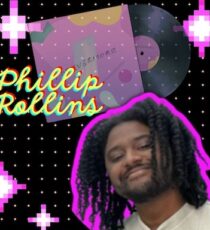
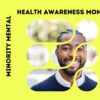
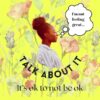

Social Menu